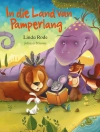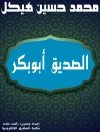In ‘The Complete Fairy Tales of Hans Christian Andersen, ‘ readers are invited into a whimsical realm where the boundary between fantasy and reality is beautifully blurred. This comprehensive collection showcases Andersen’s unique narrative style, characterized by lyrical prose, vivid imagery, and profound moral undertones. Each tale—from the enchanting transformation of ‘The Ugly Duckling’ to the poignant sacrifice in ‘The Little Mermaid’—invites readers to explore complex themes such as identity, love, and the quest for belonging, which resonate deeply within the literary context of 19th-century Europe, a period rich in romanticism and burgeoning nationalism. Hans Christian Andersen, a Danish author born to modest means, drew upon his own life experiences, including personal hardships and social alienation, to craft tales that spoke to the human condition. His upbringing in a humble household and encounters with the upper classes imbued his stories with empathy, allowing him to create relatable protagonists whose struggles reflect broader societal themes. Andersen’s fairy tales also mirror his interest in folklore, enriching the literary landscape of his time with imaginative narratives that continue to captivate audiences. This collection is highly recommended for readers of all ages, as it not only serves as a gateway into the enchanting world of fairy tales but also masterfully reflects the complexities of human emotions. Andersen’s timeless tales offer both entertainment and profound insights, ensuring that they remain relevant and cherished across generations.
Sobre o autor
Hans Christian Andersen (1805-1875) stands as an iconic figure in the world of children’s literature, renowned for his contributions to the fairy tale genre. Born in Odense, Denmark, Andersen grew up with a passion for literature that eventually led him to Copenhagen, where he would seek a career as an actor and singer. Ultimately, he found his calling as a writer, captivating audiences with his poetic and often philosophically profound fairy tales. Andersen’s work, such as ‘The Ugly Duckling, ‘ ‘The Little Mermaid, ‘ and ‘The Emperor’s New Clothes, ‘ diverged from traditional folklore by imparting moral lessons and reflections on human nature, often woven with elements of autobiography and social commentary. His legacy is cemented in his magnum opus, ‘The Complete Fairy Tales of Hans Christian Andersen’—an anthology that brings together over 156 stories, illustrating the prolific and varied tapestry of his imagination. His literary style combined the elegant simplicity of the oral storytelling tradition with the sophisticated undertones well-suited for adult readers. Andersen’s tales have transcended cultural barriers, being translated into over 125 languages, securing his place as a pillar of children’s literature and a master storyteller whose work continues to resonate with readers of all ages (Wullschlager, 2000; Zipes, 2005).












